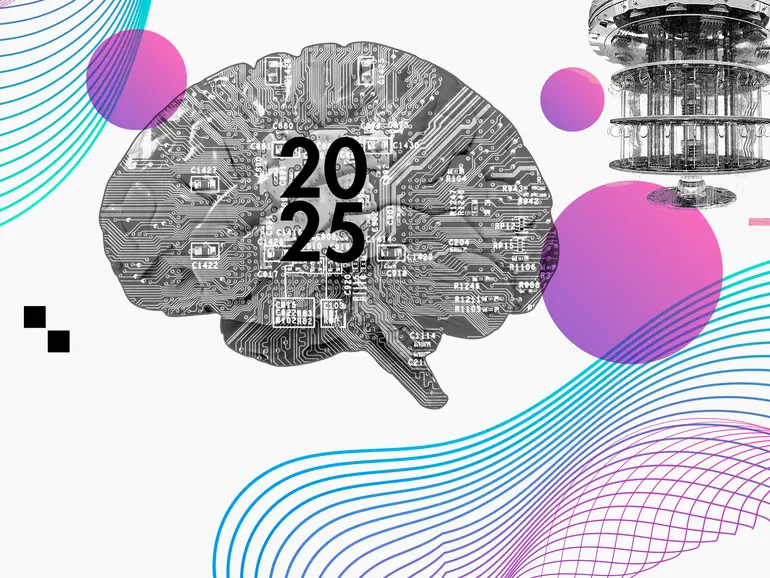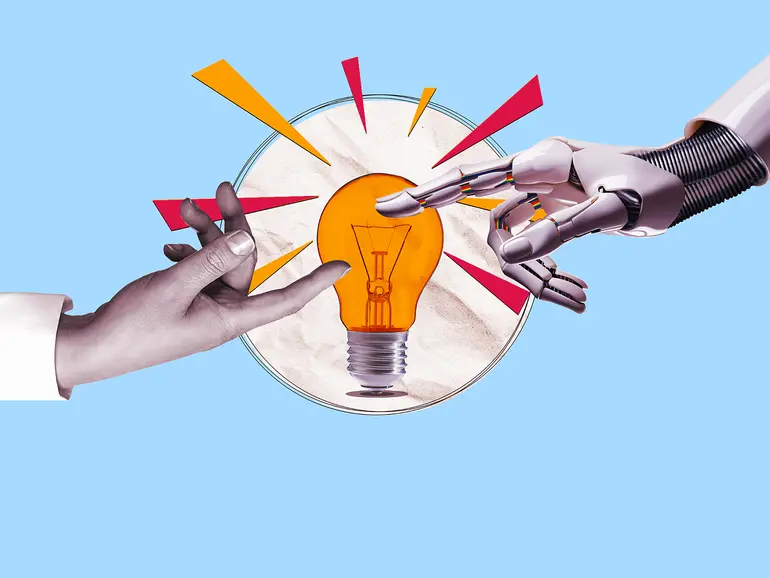The top 10 MIT Sloan Ideas Made to Matter articles of 2025
They’re nearly all about artificial intelligence, with a guest appearance from quantum computing.

Faculty
Thomas W. Malone is the Patrick J. McGovern (1959) Professor of Management at the MIT Sloan School of Management and the founding director of the MIT Center for Collective Intelligence. At MIT, he is also a Professor of Information Technology and a Professor of Work and Organizational Studies. Previously, he was the founder and director of the MIT Center for Coordination Science and one of the two founding codirectors of the MIT Initiative on Inventing the Organizations of the 21st Century. Malone teaches classes on organizational design, information technology, and leadership, and his research focuses on how new organizations can be designed to take advantage of the possibilities provided by information technology.
Malone predicted in an article published in 1987 many of the major developments in electronic business over the following 25 years, including electronic buying and selling for many kinds of products. In 2004, Malone summarized two decades of his research in his critically acclaimed book, The Future of Work. His newest book, Superminds, appeared in May 2018. Malone has also published over 100 articles, research papers, and book chapters. He is the coeditor of four books.
Malone has been a cofounder of four software companies and has consulted and served as a board member for a number of other organizations. He is also an inventor with 11 patents.
His background includes work as a research scientist at Xerox Palo Alto Research Center (PARC), a PhD from Stanford University, an honorary doctorate from the University of Zurich, and degrees in applied mathematics, engineering, and psychology.
Featured Publication
Superminds: The Surprising Power of People and Computers Thinking Together.Malone, Thomas W. New York, NY: Little, Brown and Company, 2018.
Vaccaro, Michelle, Abdullah Almaatouq, and Thomas Malone. Nature Human Behaviour Vol. 8, No. 12 (2024): 2293-2303.
Heyman, Jennifer L., Steven R. Rick, Gianni Giacomelli, Haoran Wen, Robert J. Laubacher, Nancy Taubenslag, Pranav Ragupathy, Jared R. Curhan, Thomas W. Malone, Max Sina Knicker, and Younes Jeddi. Collective Intelligence Vol. 3, No. 4 (2024).
Park, Soya, Jaeyoon Song, David R. Karger, and Thomas W. Malone. Proceedings of the ACM on Human-Computer Interaction Vol. CSCW1, No. 158 (2024): 1-34.
Malone, Thomas W. Asian Management Insights, March 2024.
Laubacher, Robert, Annalyn Bachman, Kathleen Kennedy, and Thomas W. Malone, MIT Sloan Working Paper 6961-23. Cambridge, MA: MIT Sloan School of Management, December 2023.

They’re nearly all about artificial intelligence, with a guest appearance from quantum computing.

A combination of AI and humans works best in tasks where humans outperform AI and in those that involve creating content.
"A lot of tech companies today have a lot of workers who are more receptive to using technology so they're experimenting with AI on their own," said professor Thomas Malone. "If you're in an old-line company and nobody knows how to spell AI, then it's harder to get them to use it." he joked. Non-tech companies can work to hone their workplace culture by hiring people at multiple levels with an understanding of AI, added Malone.
AI and human collaboration works best when each side does what it does best. As professor Thomas Malone put it, "Combinations of humans and AI work best when each party can do the thing they do better than the other."
AI works best not when it replaces humans, but when it augments them. As professor Thomas W. Malone, director of the MIT Center for Collective Intelligence, puts it: "Combinations of humans and AI work best when each party can do the thing they do better than the other."
Author Diane Hamilton took a class at MIT Sloan where Thomas Malone and Danielle Li shared research that "goes beyond the usual AI hype."
Over six weeks, you’ll explore the technical and strategic considerations for robust, beneficial, and responsible AI deployment. You’ll examine the various stages of a proprietary ML Deployment Framework and unlock new opportunities by investigating the key challenges and their related impact. Guided by leading experts and MIT academics, you’ll build a toolkit for addressing these challenges within your own organization and context.
This online program from the MIT Sloan School of Management and the MIT Computer Science and Artificial Intelligence Laboratory (CSAIL) challenges common misconceptions surrounding AI and will equip and encourage you to embrace AI as part of a transformative toolkit. With a focus on the organizational and managerial implications of these technologies, rather than on their technical aspects, you’ll leave this course armed with the knowledge and confidence you need to pioneer its successful integration in business.